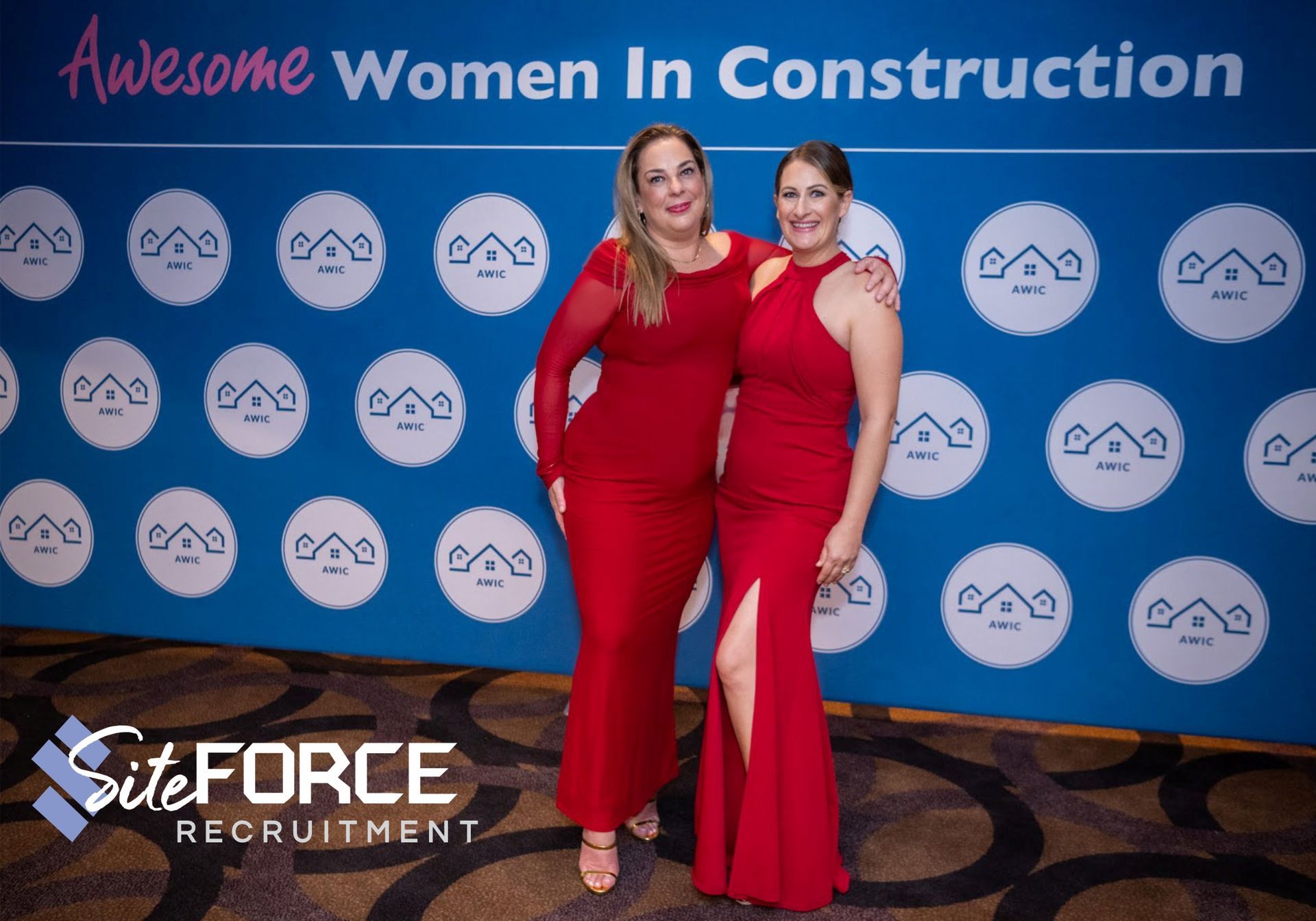Want a Sterling Reputation in 2024?
People talk. Subbies talk. Tradies talk.

In the highly competitive realm of the Australian construction industry, maintaining a stellar reputation is paramount for the success, ability to attract clients and workers, build loyalty and referrals to any construction company.
People talk. Subbies talk. Tradies talk. Word gets around quickly on who in the industry people want to work for. In my view, reputations are built from the ground up, starting with relationships.
Most construction firms keep a strong commitment to keeping up a good presence with customers. But what about their internal reputation – the ones they have with the people who actually build the product for the customer?
I had two instances recently that inspired this article. First, speaking to a candidate who was wanting a change away from his current employer who was sharing his ‘shocking’ experience with the employer. Second, speaking with a Site Supervisor who was having difficulty doing a quality job because of so many defects discovered on the job and the resistance from subcontractors to come back because their payments were overdue, and the builder was not honouring their agreement so far.
A solid reputation not only attracts clients but also fosters trust among stakeholders, including subcontractors, suppliers, and regulatory bodies. To ensure longevity and the ability to attract and retain top talent, construction companies must adhere to best practices and ethical standards. Here are five crucial tips for construction companies to safeguard and enhance their reputation in the ever-evolving building landscape of Australia.
1. Running Jobs Properly with Quality Teams:
Effective project management is essential for the success of any construction company, and your staff are key to this success. We are experiencing a high volume of very high-quality candidates looking for new opportunities at the moment, who are expressing very clear and different expectations on how their work life looks and feels in 2024. Now is the time to really address your teams and look at what is, and isn’t working, and capitalise on this talent who are ‘on the move’ to build a high-quality team. Employing top talent, coupled with robust quality management systems ensures that projects are executed efficiently, on time, and within budget. This involves recruiting expertly to the new standards expected in 2024, comprehensive planning, diligent risk management, and regular performance assessments. If your recruitment team are relying on systems only for placements, I would propose it needs a serious review to be more effective in today’s environment (or alternative, engage an expert like SiteForce Recruitment).
A well-run project reflects positively on the company's reputation, showcasing its professionalism and commitment to excellence. Conversely, a lack of effective teams can lead to cost overruns, delays, and a tarnished reputation that can deter potential clients and partners.
Find out more on this subject in my blogs on:
‘Shifting Sands – Tier 1 quality at Tier 2 prices’
[link:
https://www.siteforcerecruitment.com.au/shifting-sands-tier-1-quality-at-tier-2-prices]
‘Lost In Translation – Skill Shortfalls with Overseas Employees’
https://www.siteforcerecruitment.com.au/lost-in-translation-skill-shortfalls-with-overseas-employees
‘The limitations of Personality Indicators in Recruitment’
[link: https://www.siteforcerecruitment.com.au/the-limitations-of-personality-indicators-in-recruitment]
2. Managing Defects:
From my discussions in the industry, this is an area that is becoming more of a challenge, often from engaging talent that did not fit, or poor quality or poorly managed contractors. I’m not telling you anything new when I say one of the primary challenges faced by construction companies is effectively managing and rectifying defects in their projects. Defects, if left unaddressed, can tarnish a company's reputation and lead to costly legal battles. Plus, we’ve all had the BBQ conversations talking about which builders to use, and which ones not to. But it’s not just about the defects themselves, it’s getting reliable and quality rectification without extra cost. Like the situation mentioned above, you can employ a new Supervisor to wrangle things back into control, but if your contractors were not a good fit, or have not been paid, you’re setting up the Supervisor to fail, and not addressing the core problem in that instance about delayed payments, expectations or communication. You may want to read my blog on ‘Shortcut Subbies’ to find out more.
[link: https://www.siteforcerecruitment.com.au/shortcut-subbies].
To maintain a good reputation, construction firms must prioritise rigorous quality control measures and rigorous payment processes throughout the construction process. Robust and timely contract management and payments, regular inspections, adherence to industry standards, identifying core competencies and matches to expectations and prompt identification of defects are essential. By investing in comprehensive and cohesive quality assurance through all departments and staff, companies demonstrate their commitment to delivering flawless structures, thus building trust with clients and stakeholders.
3. Prioritising Staff and Subbie Welfare:
In the construction industry, the backbone of any successful project lies in the competence and dedication of the workforce. To maintain a strong reputation, construction companies must prioritise the welfare of their staff and subbies, starting with timely and fair remuneration. Implementing robust internal processes and systems, including HR, WH&S, contract and defect management, ensures their financial stability but also fosters a positive work culture and reputation. From recruitment to training and career development, a well-structured framework supports the business and its staff. Clear communication channels, employee feedback mechanisms, and avenues for professional growth contribute to a satisfied and motivated workforce. A construction company with a content and well-supported staff and subbies is better equipped to handle challenges, deliver quality projects, and, ultimately, safeguard its reputation within the industry. Conversely, neglecting employee or contractor welfare can lead to low productivity, low morale, high turnover rates, and a negative perception both internally and externally, eroding the company's standing in the construction community.
4. Engaging and Paying Subcontractors
I can’t stress enough that quality trades and subcontractors play a pivotal role in project execution. It can be difficult to really distinguish when engaging a new subcontractor if they actually have the internal systems to be high quality, consistent and reliable over the long term of the project and into the future. Yes, there is a contractor engagement process, but this doesn’t reveal whether the subcontractor has the internal ability, systems and time to recruit high quality trade employees consistently. I have recently written about the difficulty that I have seen with subcontractors delivering a quality service that can be relied on because managing and scaling a business is vastly different to being a great craftsperson on the tools. Not all of them make the leap successfully, and this can cause you problems.
[Link: https://www.siteforcerecruitment.com.au/tradies-toolkits-must-include-a-solid-budget]
Further, delays in payment to subcontractors is not uncommon, and not only harms their cash flow but also adversely impact the overall project timeline. Construction companies must prioritise timely payments to subcontractors, adhering to the agreed-upon terms. This not only fosters a positive relationship with subcontractors but also ensures a steady pool of skilled professionals eager to collaborate on future projects. Late payments, on the other hand, can lead to strained relationships, disputes, and negative word-of-mouth, damaging the company's ability to deliver on time and a quality product, affecting their reputation within the industry.
5. Producing a Quality Build for the Client:
Client satisfaction is the cornerstone of a construction company's reputation. Delivering a high-quality build that aligns with client expectations is non-negotiable. Clear communication, regular updates, and collaboration with clients throughout the construction process are crucial. Companies that prioritise client satisfaction not only secure repeat business but also benefit from positive referrals and testimonials. Conversely, a failure to meet client expectations can result in legal disputes, financial losses, and a damaged reputation that may take years to rebuild.
When construction companies falter in managing defects, delay payments, deliver subpar builds, or fail to run projects effectively, the repercussions can be severe. A damaged reputation can result in a loss of clients, decreased market share, and limited opportunities for collaboration. Negative publicity spreads quickly in the tight-knit construction community, leading to a loss of trust among industry peers and stakeholders. Rebuilding a tarnished reputation is a challenging and time-consuming process, often requiring substantial investments in marketing, public relations, and tangible improvements in business practices.
In conclusion, maintaining a sterling reputation in Australia's construction industry requires a multifaceted approach. By diligently managing defects, paying obligations on time, delivering high-quality builds, and running projects with precision, construction companies can not only secure their present success but also ensure a prosperous future in the competitive building landscape of Australia. A positive reputation is an invaluable asset that opens doors to new opportunities and establishes a construction company as a trustworthy and reliable player in the industry.
Our Superpower
Our leading 'superpower' is attracting and retaining quality team members who share our values of honesty, integrity, diligence, and service, allowing us to deploy quality team members on client sites quickly.
Our team member's superpower is being motivated, prepared and ready to enthusiastically contribute to the projects at hand, more than just a pair of hands.
Related articles:
Read other informative articles for both employers and workers at: https://www.siteforcerecruitment.com.au/blogs
Chantal Penny is the Director with Superpowers of SiteForce Recruitment. A thought leader in the industry, Chantal, based on her expertise and industry perspective, offers unique guidance, inspiration, and influence in the industry. Chantal Penny is also a thought leader in the industry with her Podcast, Talent Instinct, which is available at:
https://talentinstinctpodcast.libsyn.com/site
At SiteForce Recruitment, we specialise in labour-hire and permanent recruitment in the construction industry. We are committed to valuing people, safety and wellbeing, collaboration, trust and, of course – results!
CONNECT with us via our contact page or bookings links on our website if you are looking to recruit for, get your dream job, or join our amazing labour force team.











